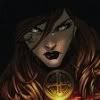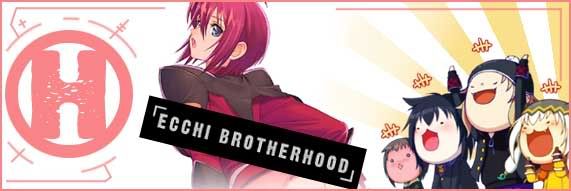Post by PilapZ on Jun 30, 2008 5:25:01 GMT 8
If your a comic book fan, artist extrordinaire, Michael Turner is a very familiar name to you. He is the artist responsible for drawing/creating memorable characters like Witchblade, Aspen of Fathom, and many others.
Last Friday, June 27, Michael Turner passed away, due to his long battle with cancer. This news is really sad for me. I looked up to him as one of my heroes. I would just like to extend my deepest condolences and prayers to Mike's friends and family.
Article from Newsarama.com:
Turner was diagnosed with chondrosarcoma (a bone-based cancer that attacks the cartilage) in March of 2000, which ultimately cost him his right hip, a portion of his pelvis and several pounds of bone. Turner was very open about his cancer, making convention appearances throughout the entire time, and never giving in to the illness.
Mike got his major break in comics at Top Cow, where he made his name as the artist on Witchblade with a look that was reminiscent of studio founder Marc Silvestri, but was all his own. His work was highly in demand throughout his career, and he was a frequent cover artist for a diverse number of series over the years. Turner’s style influenced many artists in the new millennium, probably more than Turner himself ever realized.
Turner’s creator-owned Fathom debuted in 1998, and in 2002, he left Top Cow to found his own Aspen MLT, Inc. where he saw Fathom resurface, along with other projects such as Soulfire and Ekos. Turner had done a significant portion of work at DC early in the decade, providing covers for Identity Crisis and Flash, as well as for the “Godfall” arc in the Superman titles (which he co-wrote), and the interior art for “Supergirl from Krypton” in Superman/Batman, where he and writer Jeph Loeb re-introduced Supergirl into the modern DC Universe. More recently, he had been providing variant covers for Marvel titles, such as next month’s Uncanny X-Men #500. At his most recent convention appearances, both Turner, and later Aspen representatives spoke of how the artist was eager to complete his obligations to other companies, so he could finally get back to work on his own projects at Aspen.
Despite his illness, Turner was one of the most upbeat people at conventions and in the industry. He always radiated a sense of humility and gratitude to his fans, and always had time for a quick chat or a smile. In an industry that can and has beat the happiness out of many creators, Mike was resistant to it, and was ever happy to work and talk to his fans, and even talk to the press. From the first moment you met him, you were his friend, and he treated you like he'd known you all his life.
Since his initial diagnosis in 2000, Turner had several ups and downs, but, surely thanks in part to his positive attitude, he was seen as the guy who was going to beat it, and be drawing for years to come - he just had to kick this thing first. Mike was 37.
Last Friday, June 27, Michael Turner passed away, due to his long battle with cancer. This news is really sad for me. I looked up to him as one of my heroes. I would just like to extend my deepest condolences and prayers to Mike's friends and family.
Article from Newsarama.com:
Turner was diagnosed with chondrosarcoma (a bone-based cancer that attacks the cartilage) in March of 2000, which ultimately cost him his right hip, a portion of his pelvis and several pounds of bone. Turner was very open about his cancer, making convention appearances throughout the entire time, and never giving in to the illness.
Mike got his major break in comics at Top Cow, where he made his name as the artist on Witchblade with a look that was reminiscent of studio founder Marc Silvestri, but was all his own. His work was highly in demand throughout his career, and he was a frequent cover artist for a diverse number of series over the years. Turner’s style influenced many artists in the new millennium, probably more than Turner himself ever realized.
Turner’s creator-owned Fathom debuted in 1998, and in 2002, he left Top Cow to found his own Aspen MLT, Inc. where he saw Fathom resurface, along with other projects such as Soulfire and Ekos. Turner had done a significant portion of work at DC early in the decade, providing covers for Identity Crisis and Flash, as well as for the “Godfall” arc in the Superman titles (which he co-wrote), and the interior art for “Supergirl from Krypton” in Superman/Batman, where he and writer Jeph Loeb re-introduced Supergirl into the modern DC Universe. More recently, he had been providing variant covers for Marvel titles, such as next month’s Uncanny X-Men #500. At his most recent convention appearances, both Turner, and later Aspen representatives spoke of how the artist was eager to complete his obligations to other companies, so he could finally get back to work on his own projects at Aspen.
Despite his illness, Turner was one of the most upbeat people at conventions and in the industry. He always radiated a sense of humility and gratitude to his fans, and always had time for a quick chat or a smile. In an industry that can and has beat the happiness out of many creators, Mike was resistant to it, and was ever happy to work and talk to his fans, and even talk to the press. From the first moment you met him, you were his friend, and he treated you like he'd known you all his life.
Since his initial diagnosis in 2000, Turner had several ups and downs, but, surely thanks in part to his positive attitude, he was seen as the guy who was going to beat it, and be drawing for years to come - he just had to kick this thing first. Mike was 37.


















 keeping the site active as a place to dump info for easier backtracking.
keeping the site active as a place to dump info for easier backtracking. 